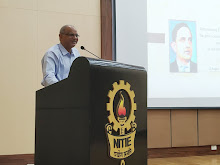Man can aspire to and achieve goodness thought many throught the history.
Goodness of course was defined differently by different people. Moses saw it as justice, Plato saw it as wisdom and Jesus saw it as love. But all them found that there was something in human nature that at war with that goodness in inherent in human nature. What is that something that is hindering or masking the goodness in humans?
Freud contributed to the understanding of the subject by developing the theory that warring factions existed in the unconscious. Superego was the restraining force and id is the instinctual drive and ego is defined as a referee operating with enlightened self-interest.
Experiment of Penfield
Dr. wilder Penfield, a neurosurgeon from McGill University in Montreal in 1951 developed the idea that when certain parts of brain (actually temporal cortex of the brain) is stimulated by a weak electric current through a galvanic probe, certain memories appeared in a flash unconsciously. When point 19 is touched certain memories came out and when point 16 is touched certain other memories came out of the experimental subject.
The conclusion made was that past events along with the feelings associated with that event were recorded in the brain and those two are inextricably locked together and they are evoked simultaneously. Recollections are evoked by stimuli of day-to-day experience in much the same way they were evoked artificially by Penfield's probe. The subject may be able to recall consciously, but still the record continues.
"Another conclusion we may make from these findings is that the brain functions as a high-fidelity recorder, putting on tape, as it were, every experience from the time of birth, possibly even before birth." But the process of information storage in the brain has undoubtedly chemical process also.
It is important to note that temporal cortex is obviously utilized in the interpretation of current experience.
Berne's contribution - A basic unit for psychological observation for interaction
Eric Berne has defined the basic unit for observation of interaction of a person with another person. It is called the transaction wherein "I do something and you do something back".
Berne developed his theory further. Parent, Adult and Child are important concepts in the theory of transactional analysis. (Theory is composed of number of theorems or theoretical propositions which answer the questions how, why, and when regarding a phenomenon - In this case the phenomenon is human behavior).
In the next, the concepts of Parent, Adult and Child are explained.
